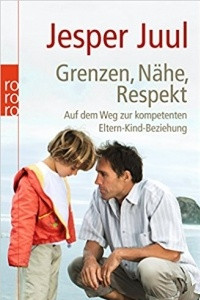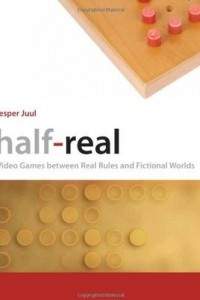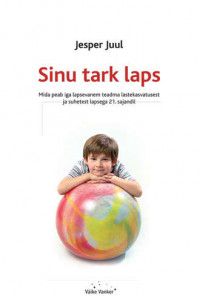- Главная
- Авторы
- Jesper Juul
- Книги Jesper Juul
Книги Jesper Juul
Jesper Juul - автор 6 книг. Из известных произведений можно выделить: Grenzen, Nahe, Respekt: Auf dem Weg zur kompetenten Eltern-Kind-Beziehung, Half-Real: Video Games Between Real Rules and Fictional Worlds, A Casual Revolution: Reinventing Video Games and Their Players. Все книги можно читать онлайн и бесплатно скачивать на нашем портале.
Jesper Juul wurde am 18. April 1948 in Dänemark geboren, wo er mit seinen Eltern und seinem Bruder auch seine Kindheit und Jugend verbrachte. Er beschäftigte sich u. a. mit Badminton und Vogelstudien und war als Pfadfinder unterwegs. Nach der Schule verließ er das Land und befuhr als Schiffskoch den Fernen Osten, arbeitete als Tellerwäscher und Barmann. Mit 18 Jahren nahm er ein Geschichts- und Re...
A video game is half-real: we play by real rules while imagining a fictional world. We win or lose the game in the real world, but we slay a dragon (for example) only in the world of the game. In this thought-provoking study, Jesper Juul examines the constantly evolving tension between rules and fiction in video games. Discussing games from "Pong" to "The Legend of Zelda," from chess to "Grand The...
We may think of video games as being "fun," but in The Art of Failure, Jesper Juul claims that this is almost entirely mistaken. When we play video games, our facial expressions are rarely those of happiness or bliss. Instead, we frown, grimace, and shout in frustration as we lose, or die, or fail to advance to the next level. Humans may have a fundamental desire to succeed and feel competent, but...
We used to think that video games were mostly for young men, but with the success of the Nintendo Wii, and the proliferation of games in browsers, cell phone games, and social games video games changed changed fundamentally in the years from 2000 to 2010. These new casual games are now played by men and women, young and old. Players need not possess an intimate knowledge of video game history or d...
Kuidas öelda oma lapsele „ei“ viisil, mis oleks ühelt poolt kindel ja selge, teiselt poolt aga armastav?
Ajad, kus lastekasvatuse eesmärgiks oli õpetada vastuvaidlematut sõnakuulamist ja vanemate võimule allumist, on möödas. Seetõttu ei saa me enam kasutada neid lastekasvatusmeetodeid, mille eesmärgiks oli kuulekuse kasvatamine. Meie kõigi soov on näha oma lapsi iseseisvate, vastutusvõimeliste, avatud ja endaga kontaktis olevate inimestena. Selliseks saab laps kasvada vaid perekonnas, kus kõige oluli...









